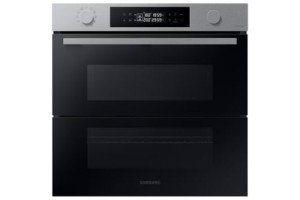Buzzwords De-Buzzed: 10 Alternative Methods Of Saying Oven Built In

The Rise of Built-In Ovens: A Comprehensive Guide
On the planet of modern-day kitchens, built-in ovens have actually carved a specific niche on their own, changing both the functionality and aesthetic appeal of culinary areas. This article explores the various benefits of built-in ovens, their installation factors to consider, and a comparison with traditional freestanding models.
Understanding Built-In Ovens
Built-in ovens are developed to be integrated flawlessly into kitchen cabinetry, providing a smooth and advanced appearance. Unlike freestanding designs, which rest on the floor, built-in ovens are mounted at eye level or under counter tops, making them ergonomic and simple to access.
Kinds Of Built-In Ovens
Built-in ovens come in a number of types, each catering to various cooking requirements and choices. Here's a brief overview:
- Single Built-In Oven: Ideal for smaller kitchens, supplying adequate cooking space for most needs.
- Double Built-In Oven: Offers separate compartments for cooking, best for larger households or those who regularly amuse guests.
- Steam Ovens: Utilizes steam cooking for healthier meals, retaining nutrients and wetness.
- Convection Ovens: Equipped with fans to flow hot air equally, making sure quicker and more consistent cooking.
| Type | Description | Best for |
|---|---|---|
| Single Built-In | One large oven compartment | Small households |
| Double Built-In | Two compartments for synchronised cooking | Large households |
| Steam Oven | Steam-based cooking approach | Health-conscious cooks |
| Stove | Fan-assisted cooking for even heat circulation | Those who bake often |
Advantages of Built-In Ovens
Visual Appeal
Built-in ovens offer a smooth, integrated appearance that improves the general look of a kitchen. They can be found in various designs and finishes that can match existing kitchen cabinetry and design, creating a streamlined and cohesive look.
Space Efficiency
Created to fit seamlessly into kitchen styles, built-in ovens can conserve valuable flooring area, making them ideal for smaller sized kitchen areas. By conserving space, property owners can take advantage of additional storage options or more counter space for cooking.
Ergonomics
Installing ovens at eye level gets rid of the requirement to flex down, reducing pressure when examining food or getting rid of hot meals. This ergonomic benefit is particularly useful for people with mobility difficulties.
Flexibility
Built-in ovens frequently feature a range of cooking modes and features, from convection cooking to self-cleaning alternatives, offering users flexibility in their cooking techniques.
Energy Efficiency
Modern built-in ovens are typically developed to be more energy-efficient than conventional designs. Functions such as much better insulation and advanced heating elements assist reduce energy consumption.
Setup Considerations
While the benefits of built-in ovens are significant, specific aspects need to be considered before choosing for this kitchen upgrade:
- Space Requirements: Built-in ovens require particular space measurements in regards to width, height, and depth. Precise measurements should be considered to prevent installation problems.
- Electrical and Gas Hookups: Built-in ovens might need particular electrical circuitry setups or gas connections. Qualified professionals ought to handle this setup to guarantee security and compliance with local codes.
- Kitchen cabinetry Compatibility: The design and structure of existing cabinets must be evaluated. Built-in designs might demand modifications to cabinets, or brand-new cabinets might need to be created to accommodate them.
- Cost: Built-in ovens typically come at a premium cost compared to freestanding designs. House owners should assess their budget plans accordingly and consider long-lasting benefits.
Installation Steps
Below are the standard actions included in setting up a built-in oven:
- Preparation: Measure the area and eliminate old appliances if required.
- Electrical/Gas Setup: Ensure the required electrical or gas connections are ready and examined for compliance.
- Cabinet Adjustment: Modify kitchen cabinetry as required to fit the built-in oven.
- Positioning: Carefully place the oven into the designated space and level it.
- Connection: Connect the oven to power or gas and make sure all fittings are safe and secure.
- Evaluating: Turn on the oven to guarantee it runs correctly.
Regularly Asked Questions (FAQs)
1. Are built-in ovens easy to set up?
While basic installation can be handled by a handy person, it is suggested to work with an expert, particularly when handling electrical or gas fittings.
2. Can I replace my freestanding oven with a built-in oven?
Yes, however it will need mindful measurement and possibly some adjustments to your existing cabinets to fit the built-in model.
3. How do built-in ovens impact kitchen resale worth?
Built-in ovens can boost a kitchen's appeal, typically making it more attractive to potential buyers, consequently supporting a higher resale value.
4. Are built-in ovens more expensive than freestanding models?
Normally, built-in ovens are more pricey due to their style and features. However, their improved looks and functionality may validate the cost for numerous property owners.
5. What are the best brand names for built-in ovens?
Some acknowledged brands consist of Bosch, Miele, KitchenAid, and Electrolux, each understood for their quality and development.
Built-in ovens represent a considerable leap in kitchen innovation, providing a mix of style, performance, and performance. While integrated oven sale require careful factor to consider regarding area, installation, and cost, the benefits they provide make them an appealing choice for contemporary homeowners. Whether upgrading an existing kitchen or designing a brand-new one from scratch, built-in ovens can elevate the cooking experience and boost total kitchen aesthetics. From performance to sophistication, they truly embody the very best of contemporary cooking services.

